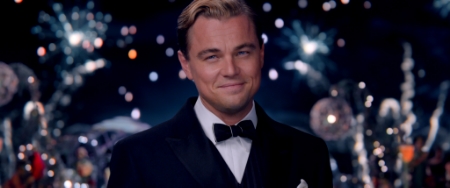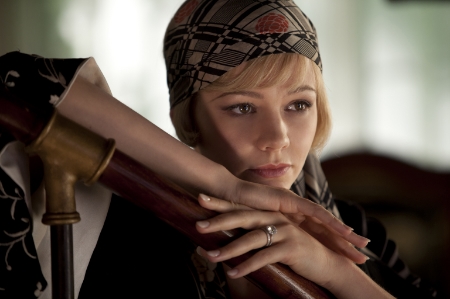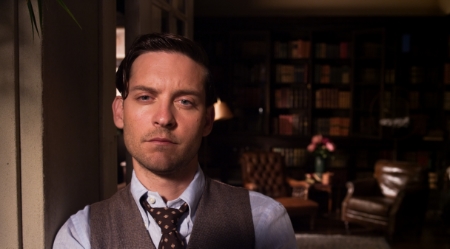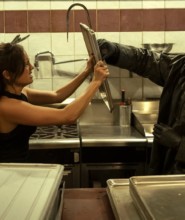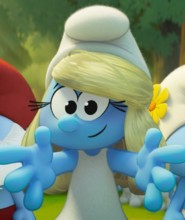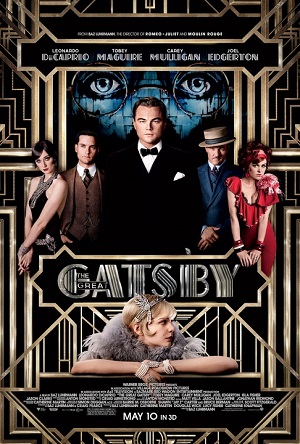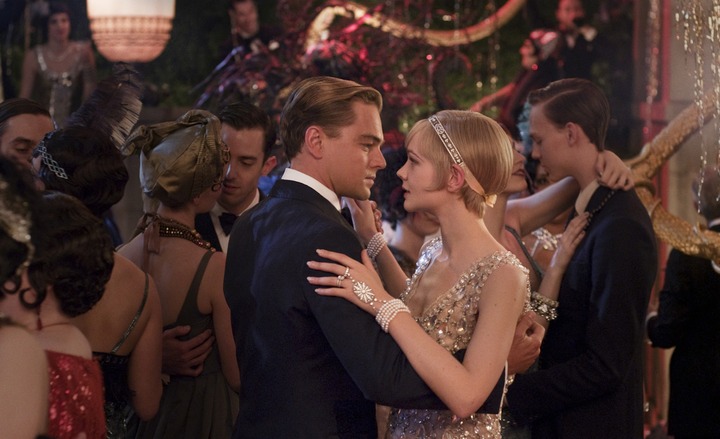
Luhrmann’s Gatsby a Visually Orgiastic Enigma
There is no disputing the consensus that F. Scott Fitzgerald’s The Great Gatsby is a classic American novel. It has withstood the test of time, the fact it is just as widely read, discussed and debated now as it ever was during the time of its original 1924 writing speaking volumes.
It is just as difficult to dispute that, for all their star power, for all the behind-the-scenes directorial prowess, no cinematic adaptation has ever met with anything most would call success, the most notable efforts failing to rise to the occasion being the 1949 version with Alan Ladd and the 1974 attempt with Robert Redford and Mia Farrow. For whatever reason no one has been able to tap into the themes and the ideas presented in Fitzgerald’s prose with any success, short bits resonating while on the whole the bigger picture fails to come to life in any lasting way.
Into this fray comes Australian wildman Baz Luhrmann. The man behind such freewheeling musically audacious favorites like Strictly Ballroom, 1996’s Romeo & Juliet and Moulin Rouge, the filmmaker has turned his attentions towards the Fitzgerald masterwork and delivered a candy-colored 3D visually orgiastic monstrosity. What’s more, that’s actually a good thing, Luhrmann connecting with the material and bringing to life its ideas with more passion and brio than any other director before him arguably has.
Not to say this new take on The Great Gatsby is a complete success. In all honesty, I’m still not quite sure I liked the movie let alone enjoyed enough of it to urge people to pay hard-earned dollars to see it in all its digital eye-popping splendor. Like most Luhrmann enterprises, its excesses are apparent right from the first frame, and it isn’t like there’s a subtle moment to be found in almost any single one of its sprawling, somewhat meandering 143-minutes. The performances range from spectacular to borderline embarrassing, while the first half hour is so in-your-face the effect comes close to being something akin to physical assault.
At the same time, Luhrmann, along with longtime fellow screenwriter Craig Pearce, seem to understand the murkily interior ethos of Fitzgerald’s source material in a way that feels honest and pure. They get the ethereal enigma which is Jay Gatsby (Leonardo DiCaprio), connect with the willowy selfish blankness of love of his life Daisy Buchannan (Carey Mulligan), and as such know how to make their story echo in the callow moral bankruptcy of modern times. The find the gory undercurrent broiling within this 1920’s pre-Great Depression excess, showing how these lost souls in many ways sadly bond with the blank-faced reality stars and false facile celebrities lorded over and unjustly celebrated in the gossip columns, blogospheres and Twitterverse of today.
It helps that DiCaprio was born to play the gigantic paradox who is Jay Gatsby. His winning smile, the way in which his trademark, “Old sport,” comfortingly drips off his lips, this wild titan of shadowy falsehoods and seemingly unlimited resources (thus setting the stage for the age-old battle of Old Money versus New Money that’s been ranging for what feels like centuries) is a manufactured idol easy to lust after. At the same time, the actor embraces the emptiness this façade has planted deep within his character’s soul, understanding the tragic underpinnings that have both made him successful at his ruse but incapable of living an honest life as a result.
There are some other great performances, not the least of which is Joel Edgerton’s dastardly, mustache-twirling devilish inhabitation of chief villain Tom Buchannan. He’s terrific, embracing all facets of the character giving him a sinister dimensionality I admittedly never expected to find. In some respects, he manages to make the callow and selfish Tom a somewhat pitiable rube, adding context to the chaos bordering on the sublime.
Poor Mulligan, much like Farrow, Betty Field and a handful of others before her, doesn’t meet with near as much success as her male counterparts. She seems lost as Daisy, never connecting with the character in ways that feel authentic. She drifts inside Luhrmann’s world seemingly caught on the wind much like the flower she’s named after, drifting here and there making Gatsby’s fascination with her, as well as her husband’s determination to keep the woman by his side in spite of his own obvious adulterous shortcomings, too ephemeral for their own good.
Then there is Tobey Maguire. He is Fitzgerald’s hardscrabble wide-eyed narrator Nick Carraway, his observations around which all else revolve. It takes a little while for the Spider-Man actor to find his footing, and during that lumpy initial act I wasn’t entirely certain I’d be at all interested in spending an additional two hours listening to him But as the movie progresses Maguire eases more and more into the character, slipping inside of him with a graceful luminosity I found captivating, leading to a final soliloquy that brought an honest tear to my eye and gloriously tragic lump right to the center of my throat.
Luhrmann over-directs at times, but that is to be expected, and while I get why he felt the material needed to be lensed in 3D there are times when the visuals work in contradiction against the central themes of the story itself. At the same time, Simon Duggan’s (Live Free or Die Hard) camerawork can dazzle, while Catherine Martin’s (Australia) production design and costumes are as every bit as incredible as I’d imagined they would be. As for the music, well, again, I understand and get what the director was going for with his fusing of ‘20s-era Jazz with Jay-Z produced reworkings of modern Rock, Pop and Rap, but it doesn’t always work like I’m sure the pair hoped it would, the soundtrack a bit tonally schizophrenic as far as the bigger picture is concerned.
At the end of the day, however, I find myself entranced by much of what Luhrmann and company were attempting to do and say with this reimagining of Fitzgerald’s novel. His version of the story might not be perfect, might not know at all times exactly what it is it wants to say, but it understands the source material in an intimately intoxicating way other adaptions have sadly lacked. This movie feels like it needed to be made now, maybe even in this very way, this new take on The Great Gatsby a saga of artifice and excess worthy of deeper explorations.
Review reprinted courtesy of the SGN in Seattle
Film Rating: 2½ (out of 4)


